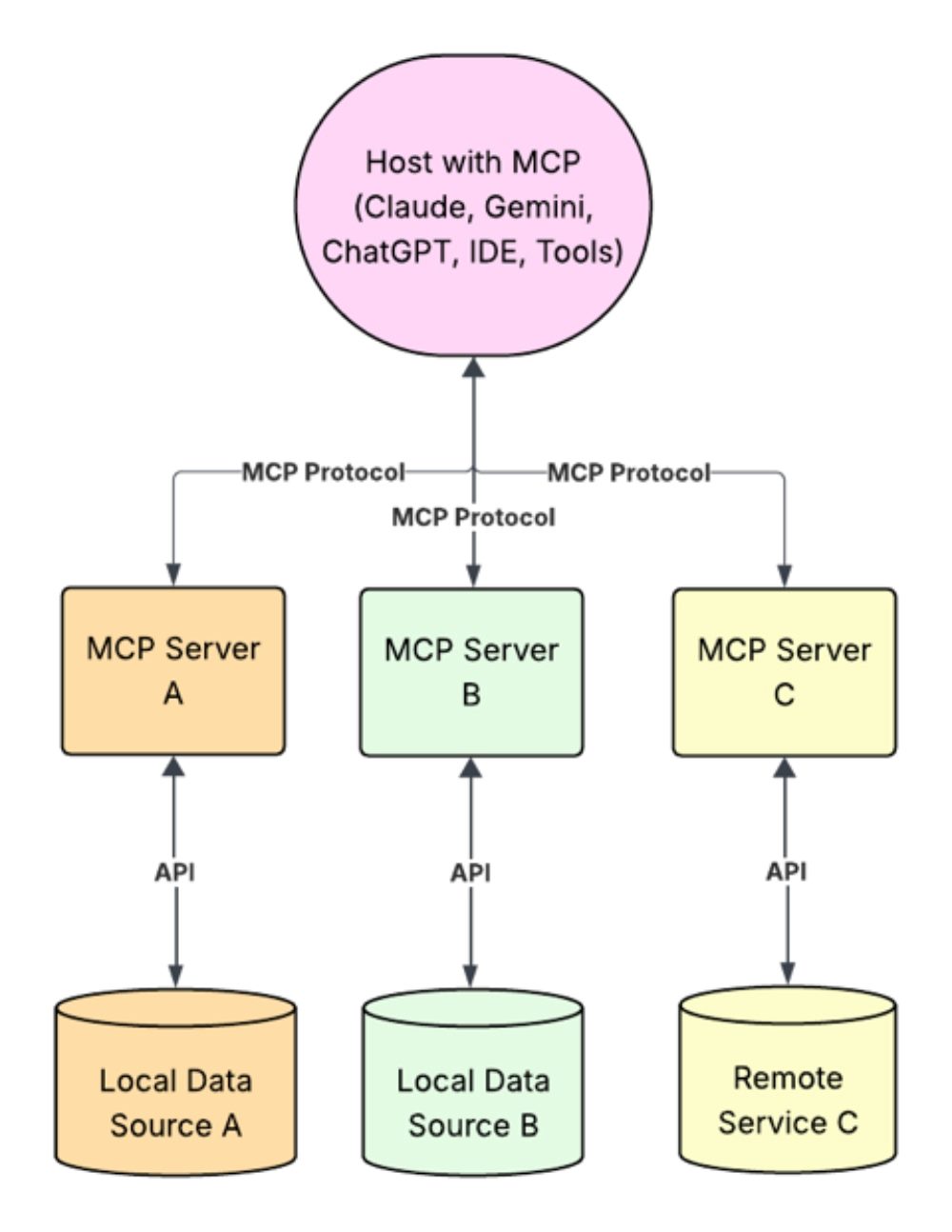The Gist
- Streamlined AI integration. Model Context Protocols (MCPs) simplify how AI connects with business tools, enabling more effective marketing workflows.
- Agentic AI in action. MCPs help AI agents operate across systems, offering proactive customer support and real-time campaign personalization.
- Quick-start potential. Marketers can launch AI pilot programs with minimal setup, integrating AI into existing tech stacks for immediate value.
Over the last two years, marketers have been bombarded with sudden news about launched AI models and subsequent updates. The buzz has captured marketers’ imagination, encouraging them to explore how AI integration can enhance a marketing team’s workflow.
And for marketing managers, the key question is how these advancements—particularly Model Context Protocols (MCPs)—can directly elevate the customer experience.
A Model Context Protocol is an open standard designed to standardize how AI applications, especially large language models (LLMs), interact with external tools and data sources.
Learning about Model Context Protocols can help marketers discover how to improve marketing systems that support the customer experience.
Table of Contents
- What Is the Value of an MCP
- How MCP Enhances the Overall Technology Stack
- How Marketers Can Start an AI Pilot
- MCPs: Bridging AI Integration Across the Tech Stack
- MCPs: The Way Forward for Advanced AI
What Is the Value of an MCP
A Model Context Protocol is a standardized data layer that sets up communication between programmatic devices or software. The protocol acts as a client-server architecture that interacts with three elements:
- The API access of a large language model and external tools
- Actions the AI can invoke through the MCP server such as executing a database query or sending an email
- Reusable prompts as templates so that the MCP server can process complex tasks
MCPs were created to standardize the communication method between large AI models and various external tools.

The launch of AI solutions has led to high developer interest in having AI agents interact with other software and with each other. Developers found the need to set up a universal translator between AI models and real-world systems.
The value an MCP brings to marketers is its ability to streamline AI integration into solutions business teams already use. An AI combined with an MCP can parse information from those solutions quickly and then explain a situation in natural language.
For example, let's say there is a volume of database queries involving several databases and marketing software solutions as well.
Instead of struggling through database queries and log files, an AI assistant could access those systems directly, understand what went wrong and present a plain-English explanation.
The benefit is a faster problem-solving process where multiple systems must be accessed to address the root cause.
Related Article: AI in Marketing in 2025: Smart Automation and Brave Brand Building
How MCP Enhances the Overall Technology Stack
MCPs represent the next layer of AI infrastructure—a system that lets your AI talk to other tools. AI agents are increasingly acting in real-world scenarios, connecting with business-critical tools so automated workflows are possible. Marketers can use MCPs to create a platform that manages a range of tasks.
Anthropic, the firm behind the AI solution Claude, brought the Model Context Protocol into the business spotlight. It released an open-source MCP standard to support Claude and other platforms for agentic AI development. The protocol allows connections to APIs, databases, file systems and other tools.
Another vital AI platform that has heightened MCP awareness is LangChain. LangChain is an open-source framework that hosts AI agents and allows LLM applications to be built. It introduced a JavaScript/TypeScript library that connects Anthropic’s MCP tools with LangChain. This kind of connection allows seamless integration of AI agents, enabling marketers to manage complex customer interactions more effectively.
MCPs deliver data standardization that serves as a framework for LLMs. As a single protocol, they replace fragmented system integrations. The result is a simpler, more reliable way to give AI systems access to data and solve tasks.
With MCPs, AI apps can instantly connect to any tool or live data—much like a USB-C connector. It is a universal way for AI to interface with the software marketers already use.
How Marketers Can Start an AI Pilot
Marketing teams working with developers can launch an AI pilot program with just one integration and build outward from there. To vet an MCP server, a team can set up the server, issue a start command and run a basic chat in a computer terminal. The chat is essentially a basic prompt and response—like in an app—but executed via command line. Teams can then add integrations incrementally, seeing value at each step rather than waiting for a perfect complete system.
Regardless of MCP variety—many launched just this year—most installations are designed to be straightforward.
Some allow JSON configuration paste-and-save. Most rely on terminal access, where the configuration is called and run.
From there, marketers can plan pilot programs that connect MCPs with content and tech systems. The following table shows examples:
Pilot Program Ideas With Model Context Protocol
Here are ideas for using an MCP with LLMs and marketing software.
| Pilot | Description |
|---|---|
| Real-time Personalized Offers & Recommendations | Imagine an MCP connecting an AI with your e-commerce platform, customer data platform (CDP) and marketing automation system. As a customer browses your website, the AI, leveraging the MCP, can instantly access their past purchase history, browsing behavior and inventory data. That enables highly personalized product recommendations or relevant offers (such as a discount) immediately, enhancing the shopping experience and increasing conversion rates. |
| Proactive Customer Service & Issue Resolution | An AI connected via an MCP to your CRM, customer service ticketing system and IoT devices can revolutionize support. If a smart-home device malfunctions, the AI can detect the issue, reference common problems and proactively create a support ticket or send a troubleshooting guide before the customer realizes there’s a problem—reducing frustration and boosting satisfaction. |
| Dynamic Contextual Email Campaigns | Imagine an AI, through an MCP, connecting to your email platform, databases (CRM, transactional data, loyalty program) and real-time data feeds (local weather or current events). When a customer opens an email, the AI instantly pulls their full profile and context. That enables dynamic customization—e.g. a weather-appropriate clothing recommendation—creating a highly engaging experience aligned with the customer’s context. |
MCPs: Bridging AI Integration Across the Tech Stack
Facundo Giuliani, solutions engineering team manager at Storyblok, told CMSWire most developers find integration remains the biggest barrier to useful AI. The tools exist to code faster, reduce bugs and streamline workflow. Without full oversight, however, it’s been hard to get real value at scale.
"MCPs feel like the missing link," Giuliani said, "finally giving AI the context it needs to connect all the dots across the tech stack. From CMS and CRM platforms to analytics and campaign workflows, it enables developers to create a unified layer where AI agents can truly understand and act on what’s happening in real time."
According to Giuliani, instead of juggling disconnected tools, this means teams can start building real, integrated workflows where everything from personalized content generation and lead follow-up through to performance optimization work seamlessly together.
"What’s particularly exciting," Giuliani said, "is how MCPs lower the barrier for getting AI into production. You no longer need to commit months to set up and (endure) complex integrations."
MCPs: The Way Forward for Advanced AI
MCPs are one example of how digital customer experience stacks are evolving into more intelligent systems—a conclusion echoed by the CMSWire State of the CMO report. Marketers are realizing AI is more than prompts and responses. Agentic AI has emerged, requiring coordination across systems.
The answer lies in Model Context Protocols. They provide the environment to explore how digital services deliver richer customer experiences.
Learn how you can join our contributor community.
